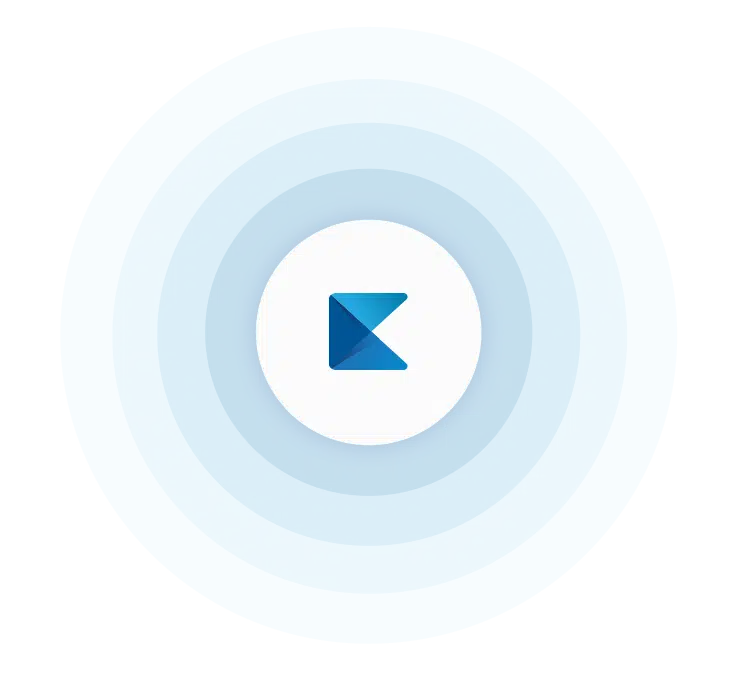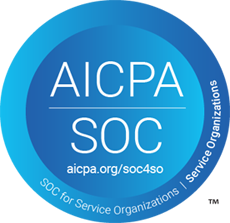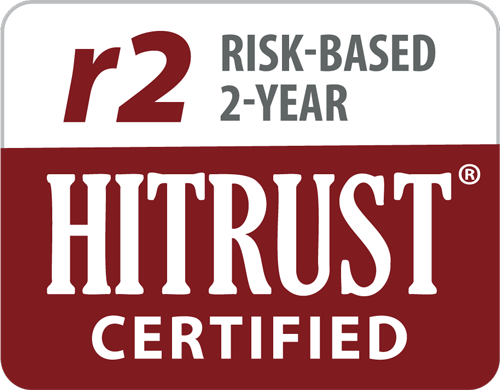VIENNA, VA. (August 16, 2016) – Nationwide health data sharing takes another leap forward as the early adopters of Carequality announced they’ve made it easier to exchange data between different electronic health record systems (EHRs), record locator services (RLS), and health information exchanges (HIEs), leveraging a central provider directory and common set of rules. At select sites, providers using athenahealth®, eClinicalWorks, Epic, HIETexas, NextGen and Surescripts are now sharing health information with other providers using the Carequality Interoperability Framework.
Published in December 2015, the Carequality Interoperability Framework provides the necessary legal terms, policy requirements, technical specifications, and governance processes to enable interoperability between and among the many healthcare data sharing networks and programs serving diverse user communities nationwide. The Framework has been adopted by 13 pioneering health organizations that are working to empower their customers, patients and providers to securely share health data across health IT platforms and geographies as never before. Many more networks and health organizations are in various stages of adoption and implementation planning.
To date, more than 3,000 clinics and 200 hospitals are live on Carequality and capable of sharing health data. Live exchange has already occurred in four states, with expansion underway as more participants go live on a regular basis. The participating organizations, which represent healthcare’s largest ambulatory vendors, the largest e-prescribing vendor and 30% of the inpatient market, are aggressively rolling out to their user communities nationwide.
“Sutter Health is excited to be one of the first large healthcare organizations to take advantage of the Carequality framework to support broad clinical information exchange for improved care coordination,” said Dr. Steven Lane, Clinical Informatics Director of Privacy & Interoperability for Sutter Health. “Many of our patients also receive care from community providers utilizing a variety of EHRs. Carequality promises to remove historic barriers to sharing information between different vendors’ EHRs allowing patients’ information to follow them wherever they choose to receive care. We sincerely hope that all EHR vendors and existing HIE networks commit to implement Carequality’s straightforward framework to finally make interoperability a part of the standard way that we provide the safest most cost-effective care to all of our patients.”
The Carequality Interoperability Framework makes it possible for healthcare to replicate the success other industries, such as banking, have achieved in breaking down barriers between many networks,
programs, and platforms. Carequality is a multi-stakeholder initiative that has brought together public and private sector players from across the healthcare ecosystem to meet the challenge of connecting disparate data sharing networks and platforms. The Carequality community uses a consensus-based process to develop cross-platform connectivity.
“Carequality Framework adoption was important in expanding the number of providers with which we are automatically connected so we can better coordinate care in our communities,” said Richard Vaughn MD, Chief Medical Information Officer for SSM Health, which is based in St. Louis. “The Framework really creates a win-win for patients and providers by helping us make faster and better decisions, avoid reordering expensive tests, and ensure that our patients receive the best care possible. We look forward to the additional benefits that will be realized when other vendors go live on the Framework as well.”
“We have been using eClinicalWorks for 11 years,” said Dr. Gary Singer, from Midwest Nephrology in St. Peters, MO. “Being a specialist whose patients are regularly seen at a local SSM Health hospital, an integration through the Carequality framework helps in electronically retrieving a complete summary about what happened with the patient at the hospital. We particularly appreciate the complete medication lists which we verify with each patient. eClinicalWorks has tightly integrated the ingestion of data from external sources making it very convenient for us in taking care of our patients seen at other care settings.”
Scott Paneitz, Chief Information Officer of Signature Medical Group in St. Louis added, “Signature Medical Group is excited that NextGen is adopting this streamlined integrated approach to accessing clinical data from hospitals and external sources. We believe our physicians will embrace this timely access of patient information to aid in making the best care decisions possible.”
Carequality is advancing the promise and potential of health data sharing among patients and providers as the standard of care, explained Dave Cassel, Director of Carequality. “With a single unified health data sharing agreement built upon Carequality’s ground-breaking Principles of Trust, there is no more need to negotiate one-off legal agreements with individual data sharing partners.
Carequality implementers – and their clients – can connect more quickly and easily than ever before.”
Quotes from Carequality Implementers Enabling Health Data Sharing Now:
“Providers using our network-enabled services expect us to constantly improve their connection to each other and those they share patients with because we don’t succeed unless they can effectively coordinate care,” said John Voith, Director of Interoperability at athenahealth. “Carequality is helping us to advance this work with our providers.”
“Interoperability between medical providers across organizations and EHR technologies is essential for improving healthcare delivery,” said Tushar Malhotra, Integration Lead for eClinicalWorks. “eClinicalWorks is committed to providing easy interoperability to our customers. Working with Carequality has been a good experience, with both our clients and their patients benefitting from an enhanced exchange of pertinent health information, elevating care delivery.”
“Carequality is a big win for patients and providers, and it will help promote continued innovation in interoperability,” says Dave Fuhrmann, Vice President of Interoperability for Epic. “By creating a vendor and platform-neutral framework that will evolve over time, the initiative supports secure health information exchange for patients without impeding development of new technology.”
“As an early adopter and participant in the Carequality Interoperability Framework, today’s announcement is extremely significant,” said Rusty Frantz, President and CEO of NextGen Healthcare. “It’s a tipping point because the initiative transforms the promise of easier nationwide health data sharing into real progress. Ambulatory providers, and the industry as a whole, need to build robust inventories of successful interoperability use-cases. This go-live is a welcome catalyst to that process. Value based medicine requires that accurate information is easily shared and accessible, to the right care team and the right clinician, at the right time and place. That’s true interoperability and the cornerstone to having the information needed to improve community health and reduce the cost of health care.”
“Many of the patients served by our National Record Locator Service have dozens and even hundreds of visits in their care histories, so we know these patients are suffering from complex medical issues that represent a large portion of healthcare costs,” said Tom Skelton, Chief Executive Officer of Surescripts. “By implementing NRLS according to the Carequality framework, we are enabling immediate scale and connectivity based on patient-centric information, so providers can make more informed and higher quality care decisions.”
Quotes from Carequality Interoperability Framework Adopters Implementing this Year:
“Our partnership with Carequality has tremendously strengthened our ability to engage with other networks and quite frankly simplified the process in a way that minimizes the politics and time to connect,” said Brian Yeaman, MD, Chief Administrative Officer of Coordinated Care Oklahoma. “We’ve now enabled local, regional, multistate and now nationwide connections for our providers.”
“Providing customers, clinicians, payers and ultimately patients with improved access to data and information is critical to driving efficient, smart care coordination toward better outcomes in healthcare,” said Jon Zimmerman, General Manager of GE Healthcare, Clinical Business Solutions. “The Carequality Framework is an important step in the evolution of interoperability offering an efficient and effective healthcare experience for patients, providers and payers.”
“As the trend toward quality and value-based care models increases, the importance of data and information interconnectivity has never been more essential” said Eric Sullivan, Vice President for Product Innovation and Data Strategies for Inovalon. “This interoperability will drive significant value across the industry by further enhancing the delivery of Inovalon’s powerful, real-time analytics that can significantly improve clinical insight, quality outcomes and financial performance.”
Integrated Data Services is proud to be a member of the Carequality framework. IDS matches requesters of medical data with the medical and IT organizations housing them. Joining Carequality allows authorized users and providers utilizing IDS to gain access to richer medical data and to receive optimized, streamlined care. IDS is very excited about the future of direct consumer engagement that the Carequality Framework facilitates,” said Moti Mitteldorf, Chief Technology
Officer of Integrated Data Services. “Utilizing the Framework will assist us in aggregating data and is the next step in providing true interoperability for patients and their providers.”
“At the heart of Kno2 is a commitment to put interoperability within the reach of every provider across the care continuum and technology supplier in healthcare,” said Jon Elwell, Chief Executive Officer of Kno2. “We’re very excited to provide the ability to connect our interoperability service subscribers to all the other players available through the Carequality ecosystem. This is a huge win for our partners and providers as well as the healthcare industry.”
“Netsmart clients provide continuity of care for more than 25 million persons, many of whom experience comorbid mental and physical illnesses. Our client communities include behavioral health, home health and hospice, and other areas of human services that encompass some of the most expensive and chronically ill populations,” said Mike Valentine, Chief Executive Officer of Netsmart. “Accelerating the Carequality Interoperability Framework makes it possible to supply health data for the ‘whole person’ and improve the health of these high-risk populations.”
“We’re very excited about the possibilities for direct consumer engagement that the Carequality Framework provides,” said Jared Gurfein, Chief Operations Officer of OneRecord. “We are very encouraged by the welcoming stance many Carequality implementers have demonstrated to us – there is meaningful opportunity to bring consumers their healthcare data through the interoperability facilitated by the Carequality Framework and our coming personal health record solution.”
About Carequality
Carequality is a national-level, consensus-built, common interoperability framework to enable exchange between and among health data sharing networks. Carequality brings together a diverse group of representatives, including electronic health record (EHR) vendors, record locator service (RLS) providers and other types of existing networks from the private sector and government, to determine technical and policy agreements to enable data to flow between and among networks, platforms, and geographies, much like the telecommunications industry did for linking cell phone networks. For more information, visit www.carequality.org and follow us at twitter.com/carequalitynet.
About The Sequoia Project
The Sequoia Project is a public-private collaborative non-profit (501c3) chartered to identify and advance real-world solutions for nationwide implementation of secure, interoperable health data sharing. The Sequoia Project supports multiple, independent health IT interoperability initiatives, most notably: the eHealth Exchange, a rapidly growing community of exchange partners who share information under a common trust framework and a common set of rules; and Carequality, a national-level, consensus-built, common interoperability framework to enable exchange between and among health data sharing networks, much like the telecommunications industry did for linking cell phone networks. For more information about The Sequoia Project and its initiatives, visit www.sequoiaproject.org. Follow The Sequoia Project on Twitter: @SequoiaProject.




